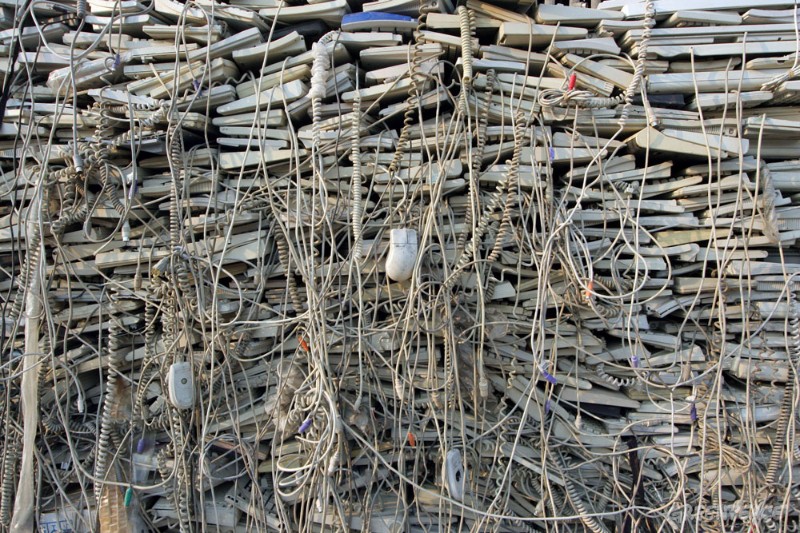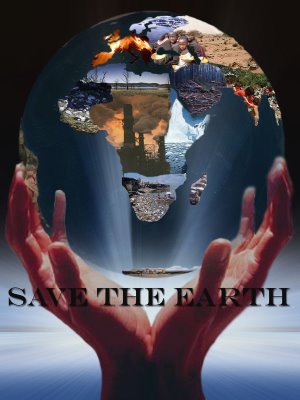What is your ecological footprint? Why don’t you find it out? Click here and here. Compare the results. Are they the same? Are you happy with the feedback or do you need to change something in your lifestyle? What suggestions are you given as to how to change your ecological footprint for the better?
Read what you could do to reduce your carbon footprint. Which piece of advice would you be aple to pursue easily. Which one is impossible for you to fulfil? Why?
Human activities have an impact on the environment – this impact can be measured as an emission of carbon dioxide. Find out how average emissions differ depending on where you live.
Measuring the impact of carbon dioxide on the environment
A carbon footprint is a measure of the impact our activities have on the environment. It calculates the greenhouse gases we are expected to produce in all our activities and measures them in units of carbon dioxide. The world average is about 4,000 kg of carbon dioxide per person per year. In the UK it is nearly 10,000 kg per person per year.
This pie chart shows what contributes to the carbon footprint of a typical person living in an MEDC.

Pie chart showing a break down of a typical persons footprint in a MEDC
As a country develops its carbon footprint tends to increase.
Climate change
Greenhouse effect
Some heat energy from the Earth’s surface escapes into space. If too much heat energy escaped, the planet would be very cold. However some gases in the atmosphere can trap escaping heat energy, causing some of it to pass back to the surface.
These are called greenhouse gases, and they keep our planet warm, which is a good thing. Carbon dioxide is an important greenhouse gas.
Increasing carbon dioxide levels
Humans burn fossil fuels such as oil, coal and natural gas. The energy released is used to power cars and other machines, to generate electricity, and to keep buildings warm. The burning fuel releases waste gases, including carbon dioxide. As the human population increases, more fuel is used, and more carbon dioxide is released.
Global warming
The extra carbon dioxide increases the greenhouse effect. More heat is trapped by the atmosphere, causing the planet to become warmer than it would be naturally. The increase in global temperature this causes is called global warming.
Humans
Humans are very successful living things. We compete with other organisms for many natural resources. These include:
- land (for farms, buildings and roads)
- water (for drinking, watering fields, and industry)
Population growth
The world’s population of humans is increasing all the time. In the year 1800 it was about 1 billion, and now it is more than 6 billion (that’s 6,000,000,000).
More people mean more use of natural resources, and bigger changes to the environment. The graph shows population growth over the last 200 years.
(Source: http://www.bbc.co.uk/bitesize)
What are we doing to our planet?
Take care of the earth
I would like to dedicate a few hours to our great planet! There are plenty of things we could do, but I would like to focus on an issue little known to us (at least this is my assumption!). Before we start, just have a look at what we take for granted every day.
What are the things that jeopardize this beautiful planet of ours?
What are your feelings after watching this video?
How can we help our Earth “embrace” future generations?
First thing first, we must become aware of the ways we have an impact on the environment (our carbon footprint) and what we can do to prevent harming our health and nature at large. We need to ask ourselves questions and stop taking things for granted. We need to become responsible consumers and careful “disposers”. Whatever we throw away will turn into a boomerang for our children if we do not do it in the respect of nature and regulations. Pollution does not stop at our doorway, does not make any differences as to social class or nationality. Have you ever heard of the butterfly effect?
When we throw away batteries, household appliances (refrigerators, dish-washers, washing machine, blenders, hair-dryers, TV-set, radios, mobile phones, etc.), computers, and other heavy goods, where do they end?
Look at the following video. What do you learn from it you did not know before? What can we do to become more responsible consumers and disposers of goods?
The amount of electronic products discarded globally has skyrocketed recently, with 20-50 million tonnes generated every year. If such a huge figure is hard to imagine, think of it like this – if the estimated amount of e-waste generated every year would be put into containers on a train it would go once around the world!
Electronic waste (e-waste) now makes up five percent of all municipal solid waste worldwide, nearly the same amount as all plastic packaging, but it is much more hazardous. Not only developed countries generate e-waste; Asia discards an estimated 12 million tonnes each year.
E-waste is now the fastest growing component of the municipal solid waste stream because people are upgrading their mobile phones, computers, televisions, audio equipment and printers more frequently than ever before. Mobile phones and computers are causing the biggest problem because they are replaced most often. In Europe e-waste is increasing at three to five percent a year, almost three times faster than the total waste stream. Developing countries are also expected to triple their e-waste production over the next five years.
Did you know?
- The average lifespan of computers in developed countries has dropped from six years in 1997 to just two years in 2005.
- Mobile phones have a lifecycle of less than two years in developed countries.
- 183 million computers were sold worldwide in 2004 – 11.6 percent more than in 2003.
- 674 million mobile phones were sold worldwide in 2004 – 30 percent more than in 2003.
- By 2010, there will be 716 million new computers in use. Therewill be 178 million new computer users in China, 80 million new usersin India.
What is E-Waste? Why is it dangerous? Who is it dangerous for? What can be done? Read the following article and try to answer these questions?
E-waste pollution: threat to human health
Do this test, what are the results?
Greenpeace has been investigating the immoral and illegal e-waste dumping in developing countries since 2002. After China, India, Pakistan and Ghana, this is the story of how one very broken TV managed to avoid being tested and recycled according to EU regulations and instead ended up in Nigeria as “second-hand goods”
Find out more about the Greenpeace investigation
Manufacturers of electronic goods, who have benefited from sales of their products, should take responsibility for them from production through to the end of their lives. To prevent an e-waste crisis, manufacturers must design clean electronics with longer lifespan, that are safe and easy to recycle and will not expose workers and the environment to hazardous chemicals.
Clean up
Electronics manufacturers must stop using hazardous materials. In many cases, safer alternatives currently exist.
Take back
The taxpayer should not bear the cost of recycling old electrical goods. Manufacturers should take full life cycle responsibility for their products and, once they reach the end of their useful life, take their goods back for re-use, safe recycling or disposal.
What you can do
- Support companies that make clean products. If you are buying a product check our Guide to Greener Electronics.
- Think twice before buying whether you really need a new device.
- Return your equipment to the manufacturer when you have finished with it.
How green are you then? (Look at the Guide to Greener Electronics)
Now please, visit Ms. Cimetta’s post, so that you can watch an interesting video from www.ted.com and read other interesting stuff she posted for you. This way you will be more prepared for the 16th November conference. It is important for you and for me. The future of our world is in our hands too. It’s time we took some responsibility. This is the reason why Ms. Cimetta and I believe this kind of awareness should be prompted at school too!
I would love to conclude this post with a poem by Michael Jackson.
*Planet Earth Poem* – spoken by MICHAEL JACKSON (from This Is It Album)
Planet Earth, my home, my place
A capricious anomaly in the sea of space
Planet Earth, are you just
Floating by, a cloud of dust
A minor globe, about to bust
A piece of metal bound to rust
A speck of matter in a mindless void
A lonely spaceship, a large asteroid
Cold as a rock without a hue
Held together with a bit of glue
Something tells me this isn’t true
You are my sweetheart, soft and blue
Do you care, have you a part
In the deepest emotions of my own heart
Tender with breezes, caressing and whole
Alive with music, haunting my soul.
In my veins I’ve felt the mystery
Of corridors of time, books of history
Life songs of ages throbbing in my blood
Have danced the rhythm of the tide and flood
Your misty clouds, your electric storm
Were turbulent tempests in my own form
I’ve licked the salt, the bitter, the sweet
Of every encounter, of passion, of heat
Your riotous color, your fragrance, your taste
Have thrilled my senses beyond all haste
In your beauty I’ve known the how
Of timeless bliss, this moment of now.
Planet Earth, are you just
Floating by, a cloud of dust
A minor globe, about to bust
A piece of metal bound to rust
A speck of matter in a mindless void
A lonely spaceship, a large asteroid
Cold as a rock without a hue
Held together with a bit of glue
Something tells me this isn’t true
You are my sweetheart, gentle and blue
Do you care, have you a part
In the deepest emotions of my own heart
Tender with breezes, caressing and whole
Alive with music, haunting my soul.
Planet Earth, gentle and blue
With all my heart, I love you.”





